Selfridges’ head of recruitment and onboarding Sharlene John speaks to Retail Week about how the iconic department store is driving employee diversity from the shopfloor up.
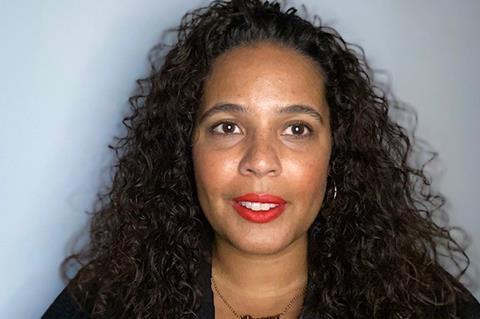
Since joining Selfridges in 2021, John has been focused on driving inclusivity and representation across the business, as well as building a pipeline of talent from underrepresented groups.
Aside from developing inclusivity training for hiring managers, John has worked on the launch of Selfridges Yellow Careers Club – an internal career development programme which focuses on driving mobility for more junior employees across the business.
Since its launch last year, over 30% of Selfridges employees that have participated in the Yellow Careers Club programme have secured new internal roles outside of their original business area.
Ahead of her appearance at Retail Week’s inaugural People & Leadership Summit, John spoke to us about her work at Selfridges and her thoughts on how Selfridges’ DE&I strategies have evolved and whether financially incentivising diversity targets is the best way to drive effective change.
Can you tell us a little about your role at Selfridges and the results your work is delivering?
“As head of recruitment and onboarding, my role looks after how we attract, recruit and onboard team members, with a key focus on moving our diversity, equity and inclusion (DE&I) strategy forward to ensure inclusivity within our business. I’m passionate about cultivating a sense of belonging from the moment a team member steps through our doors – they know they have the space and support to thrive.
“I’m proud of what we’ve achieved in recent years – from moving the dial on key milestones, including increasing ethnic representation across all areas of our business at all levels and increasing our female representation at the senior level – to working closely with external partners to create opportunities for underrepresented members of our wider community.”
As a long-term DEI advocate, how would you say retail’s approach to workforce diversity has evolved since 2020 [the Covid lockdown]?
“2020 was a pivotal moment for all businesses and the conversations that are happening now versus pre-2020 are quite different.
“In my opinion, four years on, we’re at an interesting point across the DE&I space where previous gestures from some companies are now appearing more performative than genuine with their lack of commitment to drive DE&I policies forward.
“Whether that’s caused by not having the backing from their board or shareholders or trying to drive change in an environment that isn’t ready to embrace it – we run the risk of collective burnout among the wider DE&I community.
“However, on the flip side, I’ve seen many companies that genuinely care about continuing the conversation. It’s fantastic to see that people are more open to exploring what DE&I actually means and how it can positively impact company decisions.”
You’ve really focused on diversity and social mobility in your recruitment process. Can you give me a sense of the impact this is having on recruitment and retention at Selfridges?
“We have more people working in our business from low socio-economic and minority backgrounds than we have previously had. This is a direct result of the community partnerships we have made and continue to build to create meaningful, paid opportunities for those who need an extra hand-up.”
Selfridges is an iconic luxury destination – does that impact the type of applicants you get, and if so, how do you ensure you are hiring a diverse workforce?
“The luxury retail industry has always had a stigma of only employing a certain type of person, and it would be incredibly misleading for me to say that some of that stereotype still doesn’t exist today. However, the landscape has changed a lot in recent years. Overcoming that perception is an ongoing challenge my team faces, and I have made it my mission to change that narrative.
“At Selfridges, we have worked really hard to analyse and learn from our previous recruitment strategies, and we are constantly looking at how we can positively evolve how we recruit. I think being authentic in how we talk directly to candidates about where we are now and where we aim to grow has been key to engaging talent from all walks of life and backgrounds.”
Last year Asos dropped its DEI bonus targets for its directors to focus on driving profitability instead. In your opinion, is financially incentivising diversity targets an effective way of driving positive change for retailers?
“This is such an interesting question as personally, I have quite an emotional reaction to it. Why should someone be incentivised financially to hire, say, someone like me? It feels like a very carrot-and-stick approach.
“As a business leader, I fully appreciate that talking in monetary terms can be incredibly impactful – especially as it is reported that companies with a diverse workforce perform better.
“But we can’t forget the whole picture; it’s not just about hiring diverse talent. Implementing a robust DE&I infrastructure and cultivating a culture where all team members can thrive and bring their whole selves to work is how we will continue to drive positive change.”




















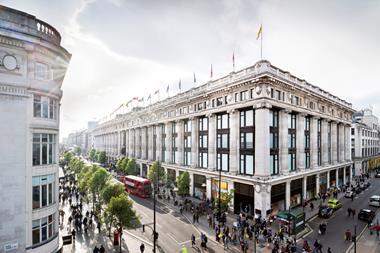
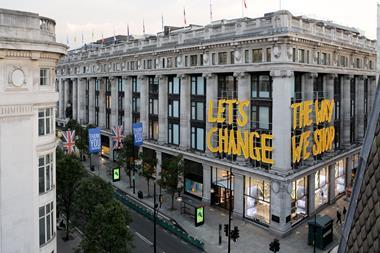

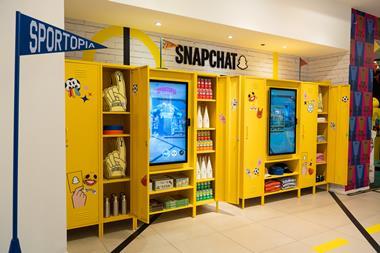
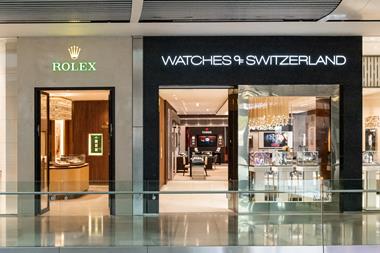
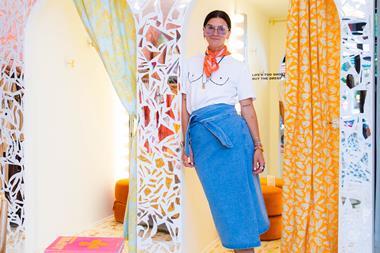
No comments yet